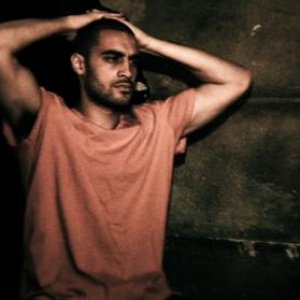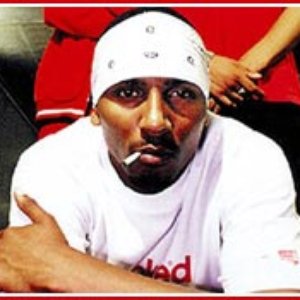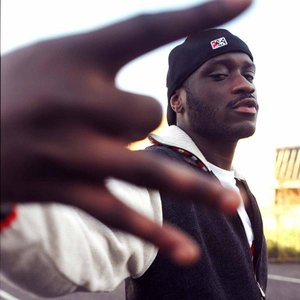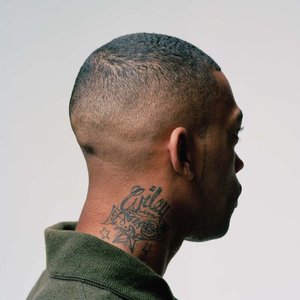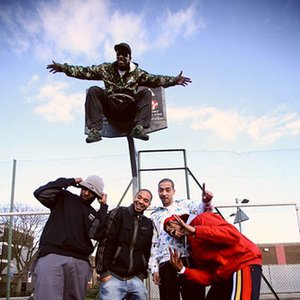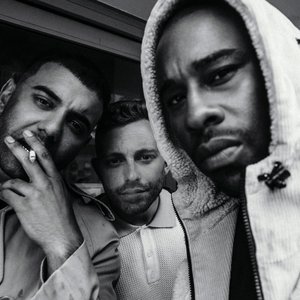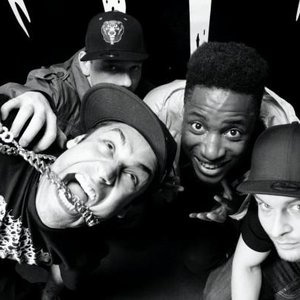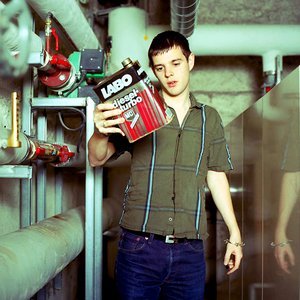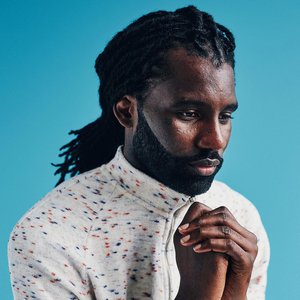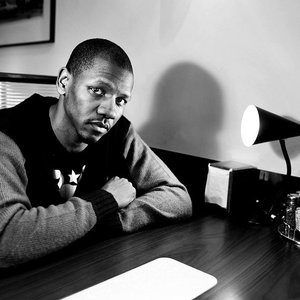Biografie
The streets gave birth to hip hop, and the streets are where it lives. But the corporate world stole rap. Now Akala’s stealing it back.
Over the last two years Kingslee ‘Akala’ Daley, 24, has emerged from London’s hip hop underground as one of the leaders of a new British artistic renaissance. In 2006 Akala won the Best Hip Hop MOBO award for his debut album ‘It’s Not A Rumour’. Since then Akala has rocked live spots on Radio 1 and warmed up for artists as diverse as Jay-Z, Christina Aguilera and Richard Ashcroft. At the same time he has tirelessly taken his acclaimed live show not only across the country, but as far a field as Nigeria and Vietnam where he performed the first ever Hip-Hop show in the country’s history at the behest of the British Council. In October 2007 he released his follow-up album "Freedom Lasso" and is getting ready to release the next single off the album "Comedy Tragedy History" in the spring. A number of new live tour dates have already been announced, details above.
Kingslee Daley chose the name 'Akala', a Buddhist moniker that means 'immovable', yet Akala the artist/MC/entrepreneur is anything but: he is a mutable, restless hip-hop polymath born under the sign of Sagittarius who has rolled through school (straight As at GCSE), the sports scene (he played for West Ham and Wimbledon) and the fast-food trade (he ran an Ayia Napa jerk joint), all before he turned 20. Recently he has focused his energies onto the business of hip hop, producing his own videos, distributing white labels, mixtapes and founding his Illa State label, the logo of which is a Union Jack in the black, gold and green of the Jamaican flag. This colour scheme couldn’t be more appropriate: in the Jamaican original, gold represents natural beauty and wealth; green signifies resources and hope; black denotes hardships endured.
Never one to mince his words, ‘Garbage’ is how Akala describes ‘what was once, not that long ago, the most charismatic, enigmatic, energetic, lyrically creative music on the planet’, because it has turned into a reflex idiolect for plastic players with false values and arid imaginations, who know the price of bling but the value of nothing. Akala’s unabashed attacks on a lazy, retrograde rap scene, have won him the plaudits of music critics and fans alike, with the genre defying debut “It’s Not A Rumour” moving hip hop both forward and back into what it was in the first place – a generational voice for change, empowerment and salvation, for himself, his people and for the streets.
True to hip hop’s original template, ‘It's Not A Rumour’ is alternately reflective and anthemic, stone to the bone and rocked-out all the way to one louder. It may move you to insurrection, to tears or just nearer to the centre of the dancefloor. On ‘This Is London’, Akala takes off where The Clash’s ‘London Calling’ left off - check that chiming guitar intro - and lifts the lid on the grimy cheek-by-jowl of the capital. On ‘Stand Up’, an incendiary Van Halen-style riff soundtracks a call-to-arms for every UK ghetto: Moss Side, Longsight, St Paul’s, Toxteth, Chapeltown. For ‘Yeah Yeah Yeah’, Akala samples doomy, Black Sabbath-style guitars and attacks modern fakery in all its forms. On the sublime ‘Hold Your Heard Up’, he lays down a hard-lived autobiography over a rolling Isley Brothers soul groove. But it’s on ‘Shakespeare’, and that inspired Tomcraft sample where Akala busts out the level of lyricism that skyrockets him beyond the reach of any contemporary. It is, like says, ‘Shakespeare with a nigga twist.’ Music hasn’t been this gregarious since Aerosmith & Run-DMC, or Public Enemy & Anthrax.
Musically, lyrically and philosophically, his new album ‘Freedom Lasso’ is the logical next stop on Akala’s musical odyssey. Reflecting the disorder and flux of contemporary life, ‘Freedom Lasso’ is an energetic and visionary essay on the modern way, drawing influences from the whole spectrum of music – dance, rap, rock, punk and folk. Together with longtime producing partner Rez, the pair have created a body of work that shifts even further from hip hop’s dominant beats-and-rhymes-and-braggadocio model: The Cure, Siouxsie & The Banshees, Prince, Andre 3000, The Prodigy, Tricky and Nine Inch Nails make strange bedfellows, yet they all feature as emerging influences on an artist who’s put in time figuring out how he sees rock ‘n’ roll history fit together.
Although the album’s messages are delivered in the language of hip hop, they advance far beyond mainstream hip hop’s (somewhat limited) current concerns. Akala is keenly aware that what began as a democratic expression of empowerment has become trapped in a vehicle which symbolizes thuggery, consumerism, homophobia and misogyny.
This sentiment is deftly displayed on the track “Where I’m From” in which Akala draws on personal experiences and directly addresses realities of gun crime, gang culture and the creeping Americanization of the British streets, attacking the ghetto mentality in search of a better way. Referencing the emergence of Crips & Bloods on London's streets, Akala rhymes: "Our grandparents got chased ‘cos they were black/now we kill each other over colours in the union jack/This is not the States, no American dream/just a British nightmare with a similar theme."
“The situation is ridiculous,” Akala says. “We need to rid ourselves of this idea that that being black is about being from the hood. It’s not predestined - you just happen to be poor. You’re not any ‘blacker’ because you’re poor and until we rid ourselves of that idea, we’ll never get beyond our current situation.”
“Freedom Lasso” is ultimately a document of modern philosophy expressed with lyrical ingenuity – not to mention show-stopping musical composition. On ‘Electro Livin’, to a soundtrack of old skool rave synths and 808 crunk rhythms, Akala discourses on the irony that, as civilization marches towards modernity, human nature fails to improve: “These wags with their fags and Christian Dior bags/shagged and they brag and pose for lad's mags/It is sad, we are sad for things we cannot have, but we are not sad for Baghdad.”
The title track articulates celebrity culture as opium for the masses: “Celebrity's our effigy/ now we're so free we choose to be shackled.” On ‘Comedy Tragedy History’ Akala consolidates his rep as one the greatest rhymesmiths around over a dirty-electro house sample, while paying homage to the Bard himself. By contrast tracks like ‘Love In My Eyes” – based around an the unrelenting punk angst of a Siouxsie & The Banshees riff – and the hypnotic “You Put A Spell On Me” focus on the kind of reflective emotional territory that’s been absent in Akala’s previous material. They're love songs infused and expressed with all the confusion of modernity.
“I approached this album like I was writing poetry,” Akala says, “more in metaphor than literally. I wrote it so that it's relevant to everybody. It's not just about ‘The Hood’ – it's about human nature. The society I see around me and the world that we live in.”
‘Freedom Lasso’ clearly asks some big, appropriate questions of subjects we’re struggling to find answers to, yet the album’s message is ultimately positive: it shows how knowledge is power and suggests that those who seek to document the truth are those who will write the real history:
“We want to make progressive music and a progressive statement”, Akala concludes, “music that’s modern and evolving, but will still be relevant 20 year from now. Music changes. But seemingly human beings have never changed.”
Reality has never been so in need of a soundtrack.
Künstlerbeschreibungen auf Last.fm können von allen bearbeitet werden. Du kannst dich gerne beteiligen.
Sämtliche von Benutzern eingestellte Texte auf dieser Seite sind unter der Creative-Commons-Attribution/Share-Alike-Lizenz verfügbar. Es können weitere Bedingungen zutreffen.

